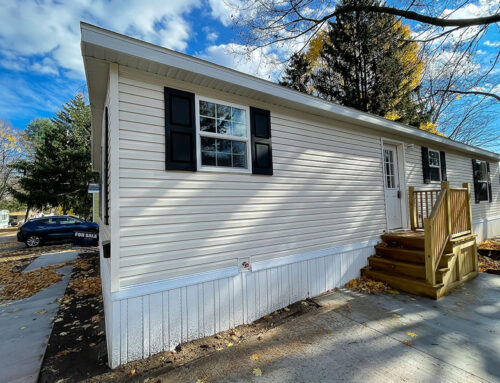New York real estate investors like me often purchase homes that need significant rehabilitation, but peeling back one layer of a house to fix a known issue often reveals even more trouble underneath. When I bought my first property, for instance, I got what I thought was a good deal on a short-sale property in Queens only to find out that a small electrical issue that I hadn’t spotted actually required the whole house to be re-wired. This, of course, affected my expected cap rate on the investment.
It was my own fault, of course—I was overeager to close on the house. As a result, I didn’t get a professional inspection of the property before signing on the dotted line. While New York has disclosure requirements for all residential real property transactions, there is currently an option for sellers to opt and pay a $500 penalty to the buyer instead. It’s critical to do your own due diligence on any property you buy in our state.
Disclosure Requirements for Sellers in New York
New York courts have a long history of applying a “caveat emptor,” or “buyer beware,” doctrine when making judgments on real estate transaction disputes. Responsibility for inspecting the property and public records used to fall squarely on the buyer. If a buyer discovered property defects, they could either ask the seller to fix the problem before closing, or, if the contract allowed, walk away from the deal altogether. This rule pretty effectively protected sellers from being targeted with costly lawsuits by dissatisfied buyers.
The passing of the Property Condition Disclosure Act (PCDA) of 2002 requires sellers of any residential real property—that is, a one-to-four family dwelling that is either intended to or is actually used as a residence—to fill out a questionnaire about the condition of the property. The standard 6-page, 48-question form asks sellers to state their knowledge of the home, including whether there are any environmental hazards, structural issues, or problems with any mechanical systems or services. In addition, the seller must disclose any deficiencies with components such as plumbing, the HVAC system, or decks and patios.
However, the PDCA also allows sellers an alternative to the property disclosure statement—they can instead pay the $500 penalty to the buyer. This relatively inexpensive fee is seen as a way to provide buyers with compensation for obtaining their own inspections and purchase the property with peace of mind.
Making the Best Decisions for Your Particular Property
While you can negotiate a sales contract that requires the seller to provide you with a disclosure, your safest bet is to get input from a neutral third party with professional experience. If you obtain your own property inspections, you may have some footing for getting compensation for the repairs. Buyers who discover a property defect before the sale closes may be able to rely on New York’s traditional “buyer beware” regulations. In addition, it is possible that the state’s consumer protection laws prohibiting deceptive business practices may also relate to real estate transactions.
In my case, I lost a good bit of money on the rehab project, which pinched my business’ profit margin. Luckily, I still came out a little bit ahead—and learned a never-to-be-repeated lesson in the process. I also came away from this unfortunate investment galvanized to get even more professional backing and became a HomeVestors® franchisee. Now, I have more training in solid investment planning and a network of mentors to lean on when questions arise.
If you are just starting out in real estate investing, I recommend getting the perspective of a professional inspector for each prospective property and the guidance of an experienced HomeVestors® Development Agent who can help you discover strategies to find houses that you can successfully rehab. Contact us today for more information.
Each franchise office is independently owned and operated.
Contact
"*" indicates required fields





